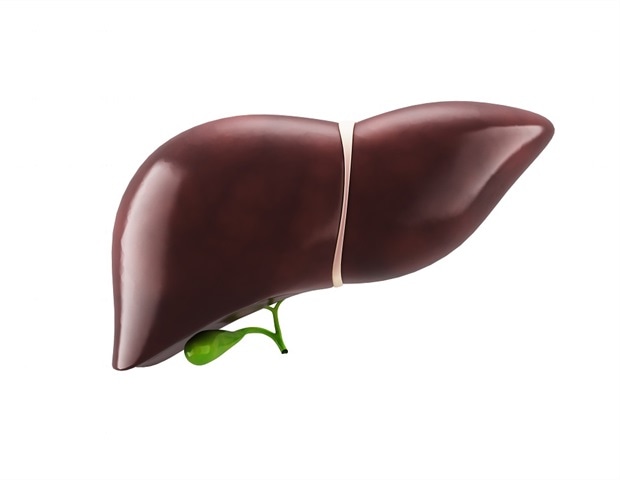Health
Blood Test Can Predict Severe Liver Disease Within a Decade

A new study from the Karolinska Institutet reveals that a simple blood analysis can predict the risk of developing severe liver disease, including cirrhosis and liver cancer. Published in the scientific journal The BMJ, this research highlights the potential for early detection and intervention in primary care settings.
Researchers, led by Rickard Strandberg and his colleague Hannes Hagström, developed a method known as the CORE model. This model assesses risk based on three routine blood tests that measure levels of liver enzymes, specifically AST, ALT, and GGT, alongside factors such as age and sex. “These diseases are becoming increasingly common and have poor prognoses if detected late,” noted Strandberg, an affiliated researcher at the Department of Medicine in Huddinge.
Effective Risk Prediction from Routine Tests
The study evaluated data from over 480,000 individuals in Stockholm who underwent health checks between 1985 and 1996. Following these participants for up to 30 years, the researchers found that approximately 1.5 percent developed severe liver diseases or required a liver transplant. The CORE model demonstrated a high accuracy rate, correctly identifying those at risk in 88 percent of cases, outperforming the currently recommended FIB-4 method.
“This model provides a critical tool for primary care, where most patients first seek medical attention,” said Hagström, who also serves as a senior consultant at Karolinska University Hospital. The model’s accessibility is enhanced by a web-based calculator available for healthcare professionals at www.core-model.com, making it easier to implement early screening for liver disease.
Future Implications and Further Research
While the CORE model shows promise, the researchers emphasize the need for further validation in high-risk groups, such as individuals with type 2 diabetes or obesity. They also advocate for integrating this model into electronic medical records to streamline its clinical application.
The study was a collaboration involving the Karolinska Institutet, Helsinki University Hospital, Helsinki University, and the Finnish Institute for Health and Welfare. Funding was provided by the Swedish Research Council, Region Stockholm (CIMED), and the Swedish Cancer Society.
Hagström highlighted his ongoing collaborations with the pharmaceutical industry regarding liver disease prognosis but clarified that none are relevant to the current study. This innovative research marks a significant advancement in the fight against severe liver diseases, aiming for timely detection and improved patient outcomes.
For more detailed information, the full study can be accessed in The BMJ, titled “Use of new CORE risk score to predict 10-year risk of liver cirrhosis in the general population: population-based cohort study.”
-

 Health3 months ago
Health3 months agoNeurologist Warns Excessive Use of Supplements Can Harm Brain
-

 Health3 months ago
Health3 months agoFiona Phillips’ Husband Shares Heartfelt Update on Her Alzheimer’s Journey
-

 Science1 month ago
Science1 month agoBrian Cox Addresses Claims of Alien Probe in 3I/ATLAS Discovery
-

 Science1 month ago
Science1 month agoNASA Investigates Unusual Comet 3I/ATLAS; New Findings Emerge
-

 Science4 weeks ago
Science4 weeks agoScientists Examine 3I/ATLAS: Alien Artifact or Cosmic Oddity?
-

 Entertainment4 months ago
Entertainment4 months agoKerry Katona Discusses Future Baby Plans and Brian McFadden’s Wedding
-

 Science4 weeks ago
Science4 weeks agoNASA Investigates Speedy Object 3I/ATLAS, Sparking Speculation
-

 Entertainment4 months ago
Entertainment4 months agoEmmerdale Faces Tension as Dylan and April’s Lives Hang in the Balance
-

 World3 months ago
World3 months agoCole Palmer’s Cryptic Message to Kobbie Mainoo Following Loan Talks
-

 Science4 weeks ago
Science4 weeks agoNASA Scientists Explore Origins of 3I/ATLAS, a Fast-Moving Visitor
-

 Entertainment4 months ago
Entertainment4 months agoLove Island Star Toni Laite’s Mother Expresses Disappointment Over Coupling Decision
-

 Entertainment3 months ago
Entertainment3 months agoMajor Cast Changes at Coronation Street: Exits and Returns in 2025









